About NAMSDL
A 501(c)(3) nonprofit organization dedicated to creating comprehensive, integrative and effective model state drug and alcohol laws, policies and programsContact Us
For Support and Questions
Call us at: 703.836.6100
Email us at: info@namsdl.org
NAMSDL Mailing Address
NAMSDL Leadership
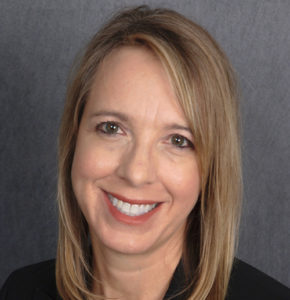
Michele Worobiec
President
Michele first joined the National Alliance for Model State Drug Laws (NAMSDL) as a board member and now serves as NAMSDL’s President. She brings more than 20 years’ experience in court policy, systems-approach strategies and evidence-based practices. Michele began her career as a private attorney in Ohio before serving on the bench for seven years, presiding over criminal and civil cases as well working with the drug, mental health and veterans courts. From there, she advanced to the position of policy counsel for the Supreme Court of Ohio. Michele also worked with the Ohio Judicial Conference, giving judges a voice in state legislative matters.
In 2017, Michele relocated to Chicago, IL to serve as vice president and chief counsel for Treatment Alternatives for Safe Communities (TASC). Her executive leadership responsibilities included corporate governance, legal risk management, policy and legislative initiatives, justice system relations and national and international consulting. Bringing forth a broad range of legal, judicial and policy experience, she is a recognized expert in the development and implementation of justice interventions for people with substance use and mental health conditions, from pre-arrest deflection to court-based interventions to community-based, post-incarceration programs that reduce recidivism.
As an international expert on diversion, alternatives to incarceration and specialized case management, Michele traveled extensively to offer consultation for states and nations seeking effective strategies for interrupting cycles of substance use and justice system involvement. She authored curricula and delivered training to cabinet members and national policy leaders, and also been a featured speaker at numerous conferences, including those hosted by the Organization of American States, US Department of State, COSSAP, SAMHSA’s GAINS Center, NADCP, American University and the Indiana State Department of Health.
Michele’s wide-ranging justice experience has brought her face-to-face with the nation’s opioid epidemic, and she has led aggressive efforts to diminish the deadly impact of opioids, fentanyl and other drugs. In 2016, she led the formation of a nine-state regional team to create a first-of-its-kind Regional Judicial Opioid Initiative (RJOI), whose opening summit convened 150 senior-level court, executive branch, elected officials and private sector delegates. She also provided leadership on Ohio’s state initiatives that allocated $20M for specialized dockets and medication-assisted treatment (MAT) for 220 courts, and oversaw the publication of Principles for the Use of Medication Assisted Treatment (MAT) in Drug Courts. Upon joining TASC, Michele successfully fought to preserve the statutory right of justice-involved individuals diagnosed with a substance use disorder to receive TASC’s specialized case management services. She served on the original executive leadership team that formed the Police, Treatment, and Community Collaborative (PTACC), and was active in the drafting and enactment of the first comprehensive deflection legislation passed by the state of Illinois. This served as the basis for NAMSDL’s model legislation, where Michele served on the drafting committee.
Michele was appointed to the National Review Board and the Implementation Advisory Group for the National Association of Drug Court Professionals (NADCP) Adult Drug Court Best Practice Standards, is credentialed by the Bureau of Justice Assistance (BJA) as a national consultant and is a global master trainer.
Michele earned her BS in psychology and her JD from The Ohio State University, where she graduated summa cum laude with honors in the liberal arts, and she was designated as one of the top 10 graduating seniors by the president of the university. Michele is admitted to practice law by the U.S. Supreme Court, Supreme Court of Ohio, Supreme Court of Illinois, and US District Court for the Northern and Southern Districts of Ohio. She is also a certified court manager (CCM) by the National Center for State Courts.

Patricia Clay
Chair, Executive Committee
Patricia Clay currently serves as the Executive Director of Treatment Communities of America (TCA), she has a Master’s degree in Public Administration from George Mason University, Master’s degree in Counseling from Assumption College and a Bachelor of Arts degree In Psychology from the University of Massachusetts.
Mrs. Clay has more than 30 years of experience in the behavioral health field and has been previously employed by the National Association of Drug Court Professionals, as the Administrator for the Rappahannock Regional Adult and Juvenile Drug Treatment Court programs, Social Worker III, In Home Therapist, Family Service Officer / Court Mediator (in the Probate & Family Court), State Probation Officer, and Addiction Specialist. Mrs. Clay is married to William “Lacy” Clay and has two children, two bonus children and a granddaughter.
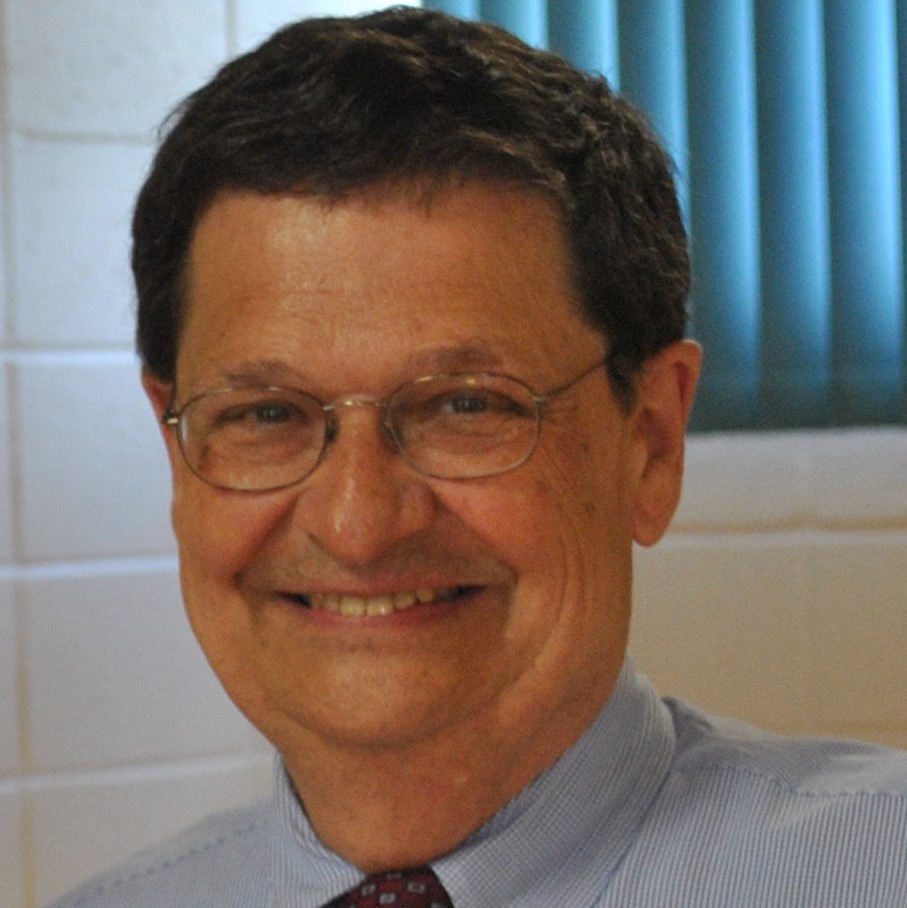
Ralph Brown
Vice Chair, Executive Committee
Ralph R. Brown of Dallas Center, Iowa, is a Director and Vice Chair of the National Alliance for Model State Drug Laws. He is the senior partner with the Brown Fagen & Rouse law firm in Dallas Center, where he has practiced since 1977; and serves as the City Attorney for Dallas Center and Granger, Iowa.
He was appointed in 1992 by President George H.W. Bush as a member of the President’s Commission on Model State Drug Laws, and in 1993 was a founding Director of NAMSDL, which continues the work of the President’s Commission. He was appointed by Iowa Governor Terry Branstad to serve on the Iowa Commission on Substance Abuse (1995-2001). Since 1999 he has served as a Director of the Partnership for a Drug-Free Iowa (and its predecessor, Face It Together).
Read more
Ralph was the Secretary of the Iowa State Senate (1973-1975) and Executive Director of the Republican Party of Iowa (1975-1977). He practiced law in Davenport, Iowa, from 1969 to 1972, and during that time served as an Assistant Scott County Attorney, assigned to Juvenile Court. He received his undergraduate (1967) and law degree (1969) from Drake University in Des Moines, Iowa; and has served as member of the Drake University Board of Trustees (1970-1978).
He was appointed by Governor Robert D. Ray as a member of the Iowa Commission on the Status of Women (1969-1975), and from 1976-1977 he chaired the Iowa Voter Registration Commission. He was appointed by two U.S. Secretaries of Agriculture to serve on the U.S. Department of Agriculture Citizens Advisory Committee on Equal Opportunity (1984-1993). He was a United States Presidential Elector in 1972; an Alternate Delegate to the 1980 and 1984 Republican National Conventions and a Delegate to the 1988 Republican National Convention.
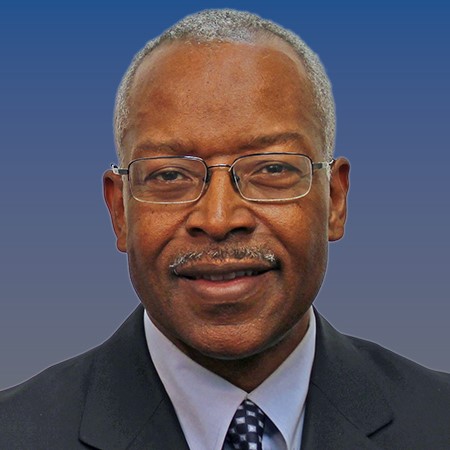
Mack Jenkins
Secretary, Executive Committee
Chief Jenkins career in the justice system spanned almost 40 years. He retired as the chief probation officer for San Diego County, where he oversaw a department of more than 1,300 staff who provided supervision and services to more than 13,000 adult and 2,500 juvenile offenders. Over the course of his career Jenkins developed expertise in the use of evidence-based practices for community supervision and gained more than 20 years of experience working in drug courts and collaborative justice programs.
He has served on a number of national boards including the National Association of Drug Court Professionals and Council of State Governments (CSG)/Justice Center. He is a former chair of the Orange County Drug Court Oversite Committee and also served on California’s Judicial Council’s Collaborative Justice Courts Advisory Committee.
Read more
Chief Jenkins is a past President of the Chief Probation Officers of California and former Vice President of the American Probation and Parole Association. He currently sits on the National Center for DWI Courts’s DWI Court Task Force, and was appointed by California Governor Jerry Brown to the Council on Criminal Justice and Behavioral Health, and the California Legislature to the California Prison Industry Authority. Chief Jenkins serves now as a Senior Policy Advisor for the CSG Justice Center and is also an adjunct instructor in criminal justice. He holds a Bachelor’s degree in criminal justice from the University of California, Irvine and a Master’s degree in criminal justice from California State University, Long Beach.
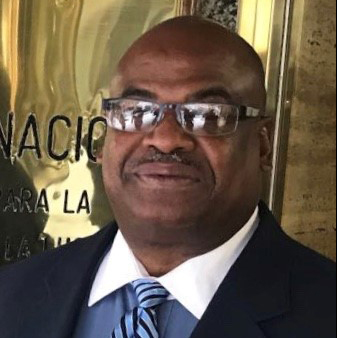
Maurice Lee
Treasurer, Executive Committee
Mr. Lee currently serves as the Vice President for Center Point Inc. Mr. Lee has devoted the past 30 years of his career working in the field of behavioral health and substance abuse with a strong emphasis on the criminal justice populations. Mr. Lee’s experience includes the activation of several substance abuse programs in California to include Valley State Prison, Sierra Conservation Center and the Baseline Fire Camp Program. Mr. Lee’s experience includes over 20 years of direct supervision within the California Department of Corrections and Rehabilitation, eight in custody Substance Abuse Programs, SASCA Region 1, STOP Region 1, Family Foundations in San Diego and several Day Reporting Centers.
In addition to Mr. Lee’s experience in the State of California, he has also worked within the state prison systems providing behavioral health and
Read more
substance abuse, and sex offender treatment services in Texas, Wyoming, Illinois, South Dakota, New York, Florida and abroad. Mr. Lee holds a MBA as well as Alcohol and Drug Counselor Level III Diplomat Certification, and Certification through the International Certification and Reciprocity Consortium since 1997. Mr. Lee has held an executive level position for the past 20 years working as a contracted service provider for the California Department of Corrections and Rehabilitation acquiring a compressive understanding of the systems to include contract management, contract negotiations, fiscal oversight and adherence to multiple contractual scopes of work.
Mr. Lee’s experience includes the oversight and management of treatment services abroad in Argentina, The Dominican Republic, Palau, Saipan, Guam, Puerto Rico and The U.S. Virgin Islands. His experience includes work with the United Nations on broad issues such as climate change, protection of costal reefs and shielding the rights of indigenous populations, capacity building and technical assistance.
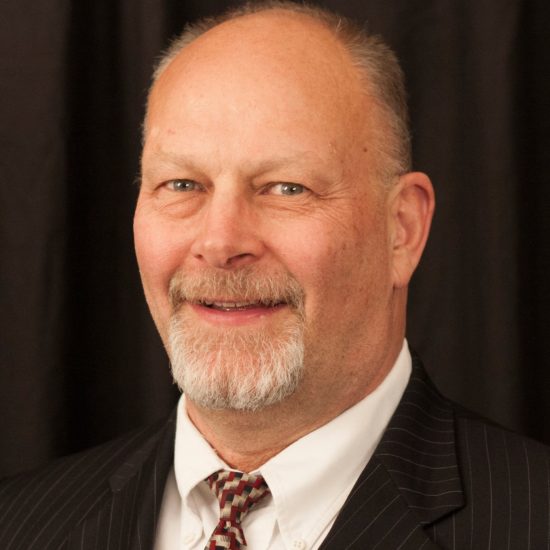
Scott W. Reed
Executive Committee
Scott W. Reed is a former assistant Utah Attorney General, assigned as special assistant to the AG and senior drug and alcohol policy advisor. In his 23 years in the Utah Attorney general’s office, Reed has served as Division Chief in three separate divisions – Criminal Justice, Commerce and Child Protection – as well as the Director of the State Assistance to Narcotics Enforcement (SANE) grant project. First admitted to practice in 1983, he has been both a prosecutor and criminal defense attorney throughout his 35 years of practice. Mr. Reed has passed the bar exam in the states of Utah, Washington and Oregon and has tried criminal jury trials in each of those jurisdictions.
Over the course of his legal career, Mr. Reed has been active in legal training of peace officers and prosecutors and has provided over 1,400 hours of instruction in areas including search and
Read more
seizure, criminal procedure, trial advocacy, asset forfeiture and financial crimes. He has been a regular instructor at the Utah Peace Officer Standards and Training (POST) Academy since 1986, and has appeared as a prosecutor trainer in Washington, Oregon, Idaho, Montana, Utah, Nevada, Colorado, Arizona, Iowa, Mississippi, Minnesota, Louisiana, Indiana, Florida and Virginia, and has been a featured presenter for both the National District Attorneys Association and the National Association of Attorneys General. He is the co-author of the 420-page Utah Drug Investigator and Prosecutor’s Handbook, and has published several articles in law enforcement journals on drug interdiction, asset forfeiture and constitutional law.
Reed currently serves as a board member of the Utah Narcotic Officers Association and the Utah Law Enforcement Memorial.
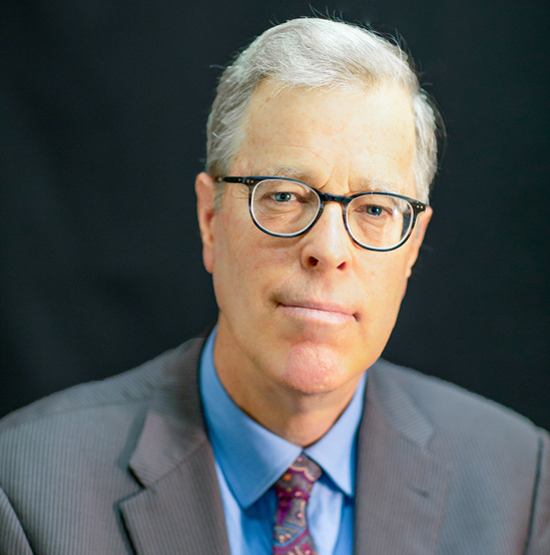
Gary Tennis
Immediate Past President, Executive Committee
Gary Tennis serves on the NAMSDL Board of Directors and served as President of NAMSDL from 2017 to 2020. In 1992-1993, he served as Executive Director of NAMSDL’s predecessor entity, the President’s Commission on Model State Drug Laws. Gary specializes in drafting and developing treatment, intervention and prevention model laws, policies, guidelines and strategies.
With the exception of his two years’ service with the President’s Commission, Gary was a prosecutor in the Philadelphia District Attorney’s Office from 1980 till 2006, the last 20 years of which he served as the Legislative Liaison for the Pennsylvania District Attorneys Association. In 1987, as Chairman of the Hiring Committee for the District Attorney’s Office, Gary created the Minority Hiring Recruitment Committee.
Read more
Gary was appointed as Pennsylvania’s first Secretary of Pennsylvania’s Department of Drug and Alcohol Programs from 2012 till 2017, during which time he served as an Officer on the NASADAD Board. He still serves on the Board for the National Association of Drug Court Professionals.
Gary was awarded the NASADAD Award for Exceptional Leadership and Support of Substance Abuse Prevention and Treatment in 2014 and the National Ramstad-Kennedy award in 2015. Gary is also a co-founder of NAMSDL.

Deborah Beck
Deborah Beck brings over 40 years of clinical, policy and legislative experience working in the alcohol and drug abuse prevention and addiction treatment field to her positions as a drug and alcohol consultant and President of the Drug and Alcohol Service Providers Organization of Pennsylvania (DASPOP). She also is a member of the Treatment Communities of America, a national organization, is a co-founder of the National Alliance for Model State Drug Laws and a Board Member of the Pennsylvania Recovery Organizations Alliance (PRO-A).
In the early 80’s, Beck began to do public policy advocacy and approached treatment programs across the state to catalyze the formation of the DASPOP, a statewide advocacy organization. Now, on behalf of this organization and others, she researches, develops and initiates policy activities on a wide array of alcohol and drug related issues. Beck also works with public policy
Read more
and legislative leaders, grassroots and consumer groups to develop and organize statewide and national public policy and legislative strategies.
Her work has led to the enactment of numerous laws regarding alcohol and other drug abuse and addiction prevention and treatment including: a law requiring comprehensive coverage of addiction treatment in all group health and insurance plans, a law requiring provision of K-12th grade alcohol and drug prevention/education in the schools, a law establishing residential rehabilitation centers for the treatment of pregnant addicted women and women with dependent children, a law requiring state
Medicaid to cover comprehensive addiction treatment and a law converting the state Bureau of Drug and Alcohol Programs into the Pennsylvania’s new Department of Drug and Alcohol Programs. Beck’s work has earned her awards from various local and statewide organizations.
From March 1992 to October 1993, Beck served as the treatment consultant to the President’s Commission on Model State Drug Laws. During this period, Beck assisted the Commissioners in the development of the Commission’s Model Treatment legislation and was the primary drafter of these Model Laws.
Beck conducts numerous workshops and diagnostic seminars throughout Pennsylvania and other states and has taught a graduate course on substance abuse and addiction at Temple University. She works with families across the state and provides training, technical assistance, management and support to numerous national and state alcohol and other drug abuse associations, addiction treatment organizations, colleges and universities.
Beck holds a Master’s degree in Social Work from Temple University and a Bachelor of Arts degree in Psychology/Religion from Earlham College in Indiana.
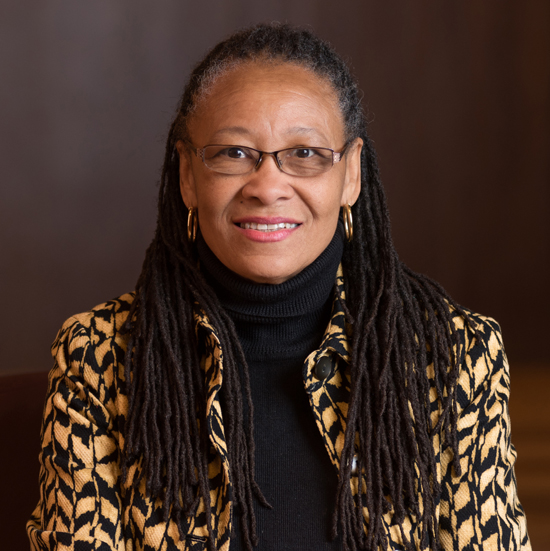
Toni Carter
Elected by the voters of District 4 on March 15, 2005, Ramsey County Commissioner Toni Carter is committed to efficient and effective county services, eliminating disparities in outcomes for diverse populations and raising grassroots awareness of county decision-making processes and systems.
The first African American ever elected as a County commissioner in the state of Minnesota, Commissioner Carter has also served as President of the Association of Minnesota Counties, Co-chair of the MN Human Services Performance Council and the Governor’s Task Force on the Protection of Children and Chair of the National Association of Counties (NACo) Human Services and Education Committee. She also co-chairs Ramsey County’s Juvenile Detention Alternatives Stakeholders’ Committee, and serves on the leadership teams of the Ramsey County Workforce Investment
Read more
Board, the Saint Paul Children’s Collaborative and the Saint Paul Promise Neighborhood.
Before becoming a commissioner, Commissioner Carter worked as a school teacher, marketing/communications and arts consultant, systems engineer, performing artist and as founding director of the non-profit ARTS-Us. She has received numerous awards for her work in the community, the arts and education, including an Honorary Doctorate in Humane Letters from Concordia University – Saint Paul. She is married to retired police professional Melvin Carter Jr., and has three children and eight grandchildren.
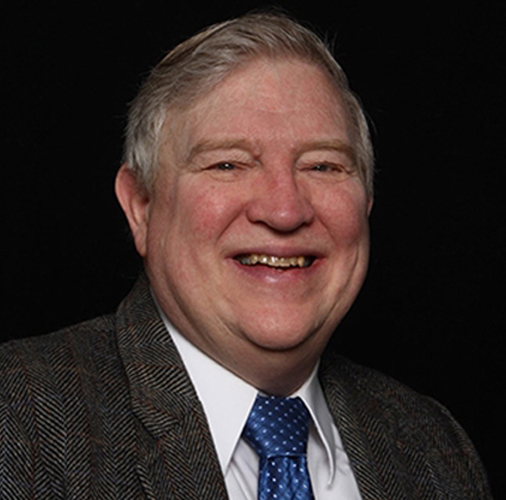
John L. Eadie
John L. Eadie is the Public Health and Prescription Drug Monitoring Programs (PDMP) Project Coordinator for the National Emerging Threats Initiative, a National High Intensity Drug Trafficking Areas (HIDTA) Program. His 49 years in public health include 34 years enhancing PDMPs.
As Director of the Division of Public Health Protection in the NY State Department of Health from 1985 to 1995, he directed the State’s pharmaceutical diversion program, including the PDMP. He co-founded the Alliance of States with Prescription Monitoring Programs (ASPMP) and the National Association of State Controlled Substances Authorities (NASCSA).
After leaving NY State in 2001, he served as a PDMP consultant. From 2010 to 2015, he was founding Director of the PDMP Center of Excellence (COE) at Brandeis University. In 2015, he transferred to the HIDTA Program.
Read more
He has published multiple articles, made numerous presentations, and served in many arenas as an expert.
He is the recipient of the 2019 Congressman Hal Rogers Beacon of Hope Award at the April 2019 Rx Drug Abuse & Heroin Summit in Atlanta, GA.

Julie Funkhouser
Originally from McLean, Virginia, Julie is the Co-Founder and Chief Executive Officer of The Recovery Connection in Winchester, Virginia, built in response to the desperate need of their community for substance use services for indigent population. Driven by passion to serve the underserved, TRC provides quality care as a Virginia Medicaid Provider with the intent to deliver the vision of heart-centered care for all. The organization aims to inspire, foster, and support healing across every area of a person’s life on the path to freedom, and hopes to expand beyond the Northern Shenandoah Valley to other communities, regions, and states.
As a woman in long-term recovery, Julie obtained her Bachelor’s degree in Psychology from Shenandoah University in 2014, graduating Summa Cum Laude. For the next three years, Julie worked at a local community mental health clinic managing the Quality Assurance and
Read more
Compliance department, as well as providing direct client care by facilitating groups in both the Partial Hospitalization and Intensive Outpatient Programs. As a Certified Peer Recovery Specialist, Julie is also finalizing her residency through the Virginia Board of Counseling to become a Certified Substance Abuse Counselor, having worked closely with clients over the last several years to deliver direct service. In addition to her background in clinical care, Julie holds a certification as a REVIVE! Naloxone Trainer through The Chris Atwood Foundation and actively partners with their team on Addiction Advocacy Initiatives.
Julie’s involvement with state and federal advocacy was born from tragedy as a result of the loss of her late husband Danny in September of 2018. Working alongside colleagues, partners and key leaders to improve legislative processes relating to Substance Use Crises in Emergency Departments, Julie has celebrated the unanimous passing of two bills in two consecutive years (2019 & 2020), now known in the state as “Danny’s Law.” Julie continues to collaborate with leaders all over the country to improve the behavioral healthcare system on both the state and federal level on a variety of efforts relating to substance use and mental health. Julie has participated in the federal drafting of legislation through the Office of National Drug Control Policy (ONDCP) and provides consultation for other advocates across all levels of government to develop strategy for various legislative efforts. Her organization, The Recovery Connection, is also a new member of Treatment Communities of America (TCA), and the only member within the state of Virginia.
In addition to her experience in executive management, clinical and peer-based elements of behavioral healthcare, Julie actively practices a variety of modalities of holistic healing and is a certified Reiki practitioner. She currently resides in Stephens City, Virginia with her two small children, Rylee and Tyler.

Bob Trojan
Mr. Trojan is an international policy expert on diversion/deflection, disruptive tech and lending, thought leader and speaker. He informs advocacy efforts for the C4 Recovery Foundation and PTACC (Police Treatment and Community Collaborative). He is Founder and CEO of DC Insights and Token Insights, which specializes in global strategy, regulatory/legislative affairs, particularly addressing such issues as justice and health reform, data privacy/security and secured transactions. He is also a Senior Advisor for the Kozolchvk National Law Center and Mentor with several FinTech/RegTech accelerators.
From 2012-2017, Mr. Trojan was the CEO of the Commercial Finance Association (CFA), the global trade organization representing 250+ banks and finance companies in the asset-based lending, supply chain finance, trade finance and factoring business.
Mr. Trojan also serves as official Observer on
Read more
three UN Working Groups, was appointed to advise the US Secretary of Commerce on its Trade Finance Advisory Council and engages regularly with the international community including the World Bank, among others.
Previously, Mr. Trojan held various senior positions at CIT, a global $65+ billion secured/asset-based lending, factoring and equipment leasing company, including chief of staff and senior operations advisor to the Vice Chairman. In addition, Mr. Trojan has worked closely with the American Financial Services Association (AFSA) on management and policy issues, and has been a Board member of the AFSA Education Foundation since 2006, promoting innovative financial literacy.
History of NAMSDL
Formed in 1993, NAMSDL began as the President’s Commission on Model State Drug Laws. This congressionally-established commission was charged with creating a model code of laws to help states effectively address alcohol and other drug abuse.
The commission was strictly bipartisan: 12 Republicans and 12 Democrats from across the nation. All state and local leaders and the commissioners came from all walks of life, each possessing expertise in some aspect of the alcohol and other substance abuse problem. They included an urban mayor, a superior court judge, state legislators, a child advocate, a housing specialist, attorneys general, police chiefs, treatment providers, district attorneys and private practice lawyers.
The commissioners were a diverse group who, at first, had seemingly little in common except their appointment to the commission. But that diversity proved to be a strength, not a weakness. Their task, as noted by Vice Chair of NAMSDL, Ralph Brown was, “To talk to people on the front lines of the alcohol and other substance abuse problem and talk to those who have done some of the next thinking on the subject and then to cull and collect good ideas and programs and distill these ideas and experiences into model drug laws.”
The commissioners held five public hearings (Detroit, Philadelphia, San Diego, Tampa and Washington, D.C.) and several working sessions to draft legislative proposals. They conducted site visits to three alcohol and other drug treatment programs and listened to and met with hundreds of individuals, agencies and groups.
Individual commissioners learned from one another, while misperceptions and differences gave way to understanding and consensus. From this new understanding came 44 model laws and policies, which offer a comprehensive continuum of responses and services to fully address alcohol, tobacco and other substance abuse problems. Tough sanctions punish those persons who refuse to abide by the law. Equally important, the sanctions are designed to be constructive, promote prevention and attempt to leverage alcohol and other substance abusers into treatment. The 44 legislative remedies are in a final report, comprised of five volumes and an executive summary:
- Economic Remedies
- Community Mobilization
- Crimes Code Enforcement
- Treatment
- Drug-Free Families, Schools & Workplaces
- Executive Summary of the Final Report
In December 1993, the commissioners submitted their model laws to the National Governors Association, the National Conference of State Legislatures, Attorney General Janet Reno and Dr. Lee Brown, then Director of the Office of National Drug Control Policy. President Clinton distributed the final report and the accompanying Rutgers University Study “Socioeconomic Evaluation of Addictions Treatment” to state and local leaders early the following year.
Mission Statement
NAMSDL empowers states by identifying and creating the most comprehensive, integrative and effective model laws, policies and protocols in the areas of drug and alcohol prevention, intervention, treatment, recovery support, overdose abatement and criminal justice.
Vision Statement
To strengthen the role of state laws, policies and protocols aimed at reducing substance use disorders in our nation's families and communities.
Values

Notice of Federal Funding Disclaimer
This website is funded in part through a cooperative agreement from the Bureau of Justice Assistance, Office of Justice Programs, U.S. Department of Justice and a grant from the Office of National Drug Control Policy. No federal instrumentality, including the Office of Drug Control Policy, the U.S. Department of Justice or its components, operate, control, are responsible for or necessarily endorse this website (including, without limitation, its content, technical infrastructure, policies and any services or tools provided).
